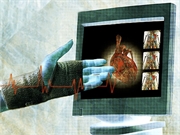- Could Your Grocery Store Meat Be Causing Recurring UTIs?
- Are You Making This Expensive Thermostat Error This Winter?
- Recognizing the Signs of Hypothyroidism
- 10 Strategies to Overcome Insomnia
- Could Artificial Sweeteners Be Aging the Brain Faster?
- Techniques for Soothing Your Nervous System
- Does the Water in Your House Smell Funny? Here’s Why
- Can a Daily Dose of Apple Cider Vinegar Actually Aid Weight Loss?
- 6 Health Beverages That Can Actually Spike Your Blood Sugar
- Treatment Options for Social Anxiety Disorder
Tough Childhoods Are Tough on Adult Hearts: Study

Adults who had rough childhoods have higher odds for heart disease.
That’s the conclusion from a look at more than 3,600 people who were followed from the mid-1980s through 2018. Researchers found that those who experienced the most trauma, abuse, neglect and family dysfunction in childhood were 50% more likely to have had a heart attack, stroke or other heart problem in their 50s and 60s.
The Northwestern University study, published recently in the Journal of the American Heart Association, is the first to examine how childhood family environment affects heart disease risk in older middle age.
Children with troubled home lives are at increased risk of stress, smoking, anxiety, depression and physical inactivity that continues into adulthood. That, in turn, can lead to excess weight, diabetes, high blood pressure, vascular dysfunction and inflammation, according to the researchers.
“This population of adults is much more likely to partake in risky behaviors — for example, using food as a coping mechanism, which can lead to problems with weight and obesity,” said first author Jacob Pierce, a fourth-year medical student at Northwestern University Feinberg School of Medicine in Chicago.
“They also have higher rates of smoking, which has a direct link to cardiovascular disease,” Pierce added in a university news release.
These adults may benefit from counseling on the connection between coping with stress and controlling smoking and obesity, but more research is needed, he said.
“Early childhood experiences have a lasting effect on adult mental and physical well-being, and a large number of American kids continue to suffer abuse and dysfunction that will leave a toll of health and social functioning issues throughout their lives,” said senior study author Joseph Feinglass, a research professor of medicine at Northwestern.
“Social and economic support for young children in the United States, which is low by the standards of other developed countries, has the biggest ‘bang for the buck’ of any social program,” he added.
More information
The U.S. Centers for Disease Control and Prevention outlines heart disease risk factors.
Source: HealthDay
Copyright © 2026 HealthDay. All rights reserved.










